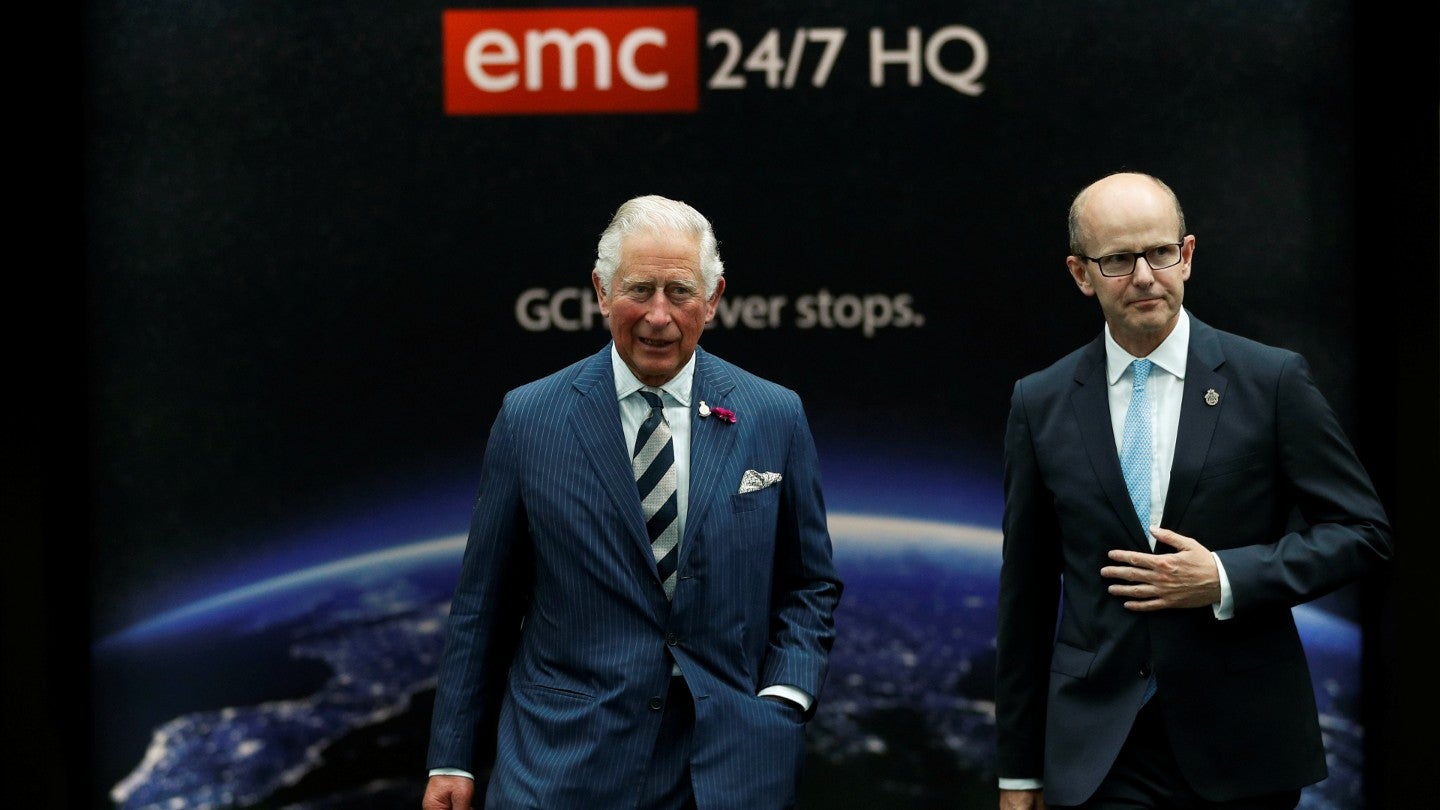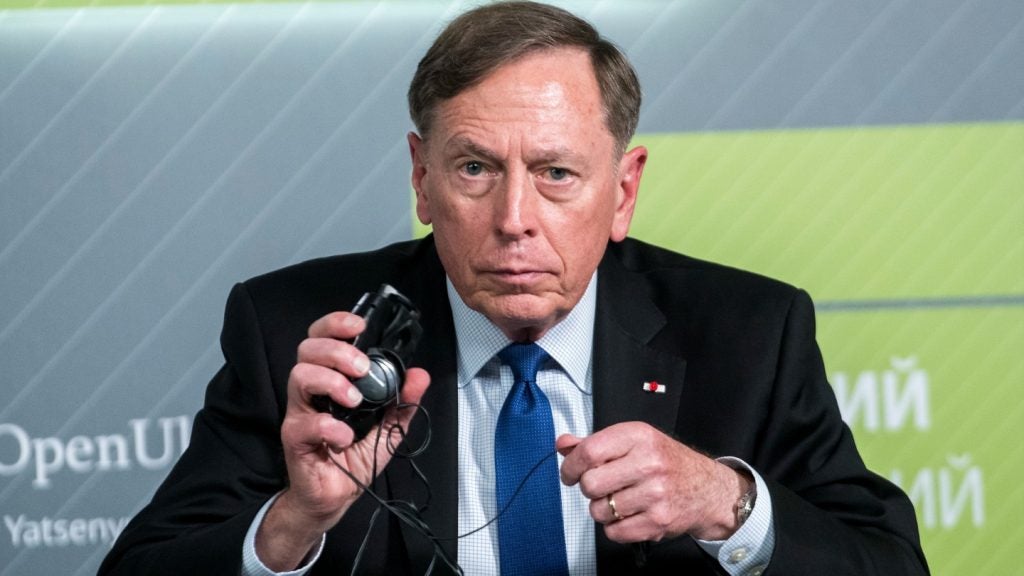
On 11 September 2001 at 8:46am EST, five hijackers crashed an American Airlines flight into the World Trade Center’s North Tower, New York City.
17 minutes later, a second plane was flown into the South Tower, damaging floors 78 to 85 and killing dozens on board and in the building.

Access deeper industry intelligence
Experience unmatched clarity with a single platform that combines unique data, AI, and human expertise.
Four floors below, Richard Rescorla – Head of Security at Morgan Stanley, the building’s largest tenant on floors 59 to 74 – evacuated 2,500 people to safety, before returning inside to make sure everyone was out.
Rescorla’s body was never found. The British and US military veteran has gone down in history as a hero for his act of selflessness.
Ever since, Morgan Stanley, Chase, Barclays and many other banking firms have maintained programmes to actively recruit ex-soldiers – and spies.
The finance-intelligence relationship is not new. John Scarlett, head of MI6 during the Iraq War who received criticism over the compilation of then UK Prime Minister Tony Blair’s “dodgy dossier” on Saddam Hussein’s alleged weapons of mass destruction (WMD), was one of the first to be publicly acknowledged when Morgan Stanley hired him as an advisor in 2010.

US Tariffs are shifting - will you react or anticipate?
Don’t let policy changes catch you off guard. Stay proactive with real-time data and expert analysis.
By GlobalDataHowever, it is a rising trend amid global volatility and increased security services publicity.
Investigations by media outlets have identified a growing trend of ex-spies working for finance firms to uncover employee misconduct and prevent costly and reputation-damaging scandals.
Finance companies including Goldman Sachs, Lazard, Deutsche Bank, HSBC, Barclays and JP Morgan are increasingly hiring former intelligence and military operatives from the CIA, GCHQ, UK and US militaries, according to reports by Bloomberg, The Sunday Times and The Bureau of Investigative Journalism (TBIJ).
The unlikely pairing comes as financial firms prioritise the threat posed by geopolitical instability, from escalating conflict across Ukraine, Palestine and the wider Middle East to the dozens of crucial elections held across the world this year.
A recent poll of 500 institutional investors by fund manager Natixis cited “geopolitical bad actors” disrupting financial markets with a single action as the top global risk in 2024.
Why do ex-spies end up in finance?
Major finance players are taking heed of such warnings.
In October 2023, Mastercard announced the hiring of Jeremy Fleming, the former head of GCHQ, the UK’s intelligence, security and cyber agency.
The decision resulted in a government committee evaluating – and eventually permitting – Fleming’s private sector move.
For former military or intelligence operatives, the move has obvious benefits.
Yearly salaries start at approximately $47,000 at MI6 and $67,000 at the CIA. Ex-spies have reportedly commanded salaries of up to $500,000.
For finance firms, the rationale stems from the “international analytical skills” developed by ex-intelligence officers, according to GlobalData defence analyst Wilson Jones.
“Former intelligence professionals bring a wealth of experience in understanding and assessing national security,” Jones told Retail Banker International. “This is essential for firms looking to expand into developing markets with higher rates of corruption.”

Such skills are essential for finance firms’ risk assessment of threats, geopolitical and otherwise, as they look to make successful investments.
“Coups and asset nationalisation, for instance, are disastrous for investors,” Jones added. “Even without access to the classified information of security services, former intelligence employees can pre-empt such a scenario for private sector firms.”
Scandal prevention or employee surveillance?
Investment success may not be the legacy envisioned following Richard Rescorla’s sacrifice on 9/11 – but it is far more welcomed than a legacy of finance firms using ex-military to monitor the lives of employees.
“Banks and other corporations are also known to hire ex-spies and security consultants to monitor employee behaviour, tracking information such as unauthorised breaks and internet usage,” Jones said. “Amazon has been reprimanded for using such data tracking for strike breaking in its America, notably by timing toilet breaks and online unionisation activity. Much of this behaviour violates US labour law.”
The stated role of these intelligence specialists is to prevent rogue traders or saboteurs from perpetrating banking scandals that are both costly and reputationally damaging.
Citicorp, JPMorgan, Barclays, UBS, and RBS were all found guilty of rigging interest rates during the Libor scandal in 2012 – and ordered to pay $5.8bn to the US Department of Justice and other regulators.
Barclays, which was forced to pay $2.2bn alone, is among those banks with the most active cohort of ex-military personnel.
At the time of the scandal, Barclays hired ex-US military officer Bryon Linnehan, who served as an intelligence officer in a cavalry tank battalion in Iraq. He now spends his days monitoring hundreds of employee emails.
While these firms claim such practices are a necessary deterrent, ethical questions have been raised.
A joint investigation by TBIJ and The Sunday Times revealed the extent to which London lawyers representing sectors spanning finance, mining and retail have had their cases bolstered by the intelligence gathered by former military.
It said these corporate spies’ tactics have meant “British courts have accepted evidence which has often been dubiously acquired – such as hacked emails, documents obtained by deceit, and statements from witnesses who were paid.”
The report named Diligence as a leading firm in corporate espionage, drawing on scores of highly trained ex-employees from the UK’s intelligence services and armed forces.
Diligence was founded by Nick Day, a former MI5 officer, while William Webster – a former US judge who had the unique distinction of also being a former director of both the FBI and the CIA – sat on the board. The firm is currently run by Trefor Williams, a former member of the UK’s Special Boat Service.
The Qatari government reportedly hired Diligence to spy on Fifa officials and a rival nation’s bid ahead of the vote to host the 2022 World Cup.
The employment of former military and intelligence operatives by finance firms comes with several obvious benefits for both parties.
Swashbuckling salaries and preventing high-profile financial scandals is one side of the story – but serious considerations over the intrusiveness of such methods must be made by firms, finance or otherwise, before jumping into bed with ex-spies for hire.







